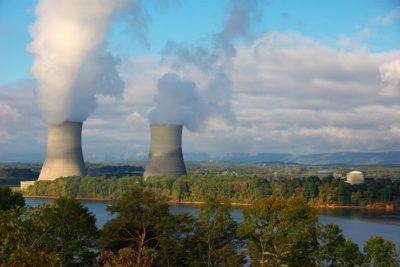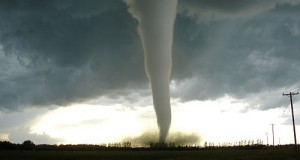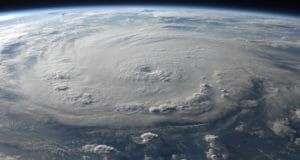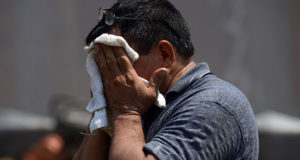 A major radiation leak reportedly occurred at a New Mexico waste facility in mid-February that largely went unreported in the mainstream media.
A major radiation leak reportedly occurred at a New Mexico waste facility in mid-February that largely went unreported in the mainstream media.
The radiation incident at the Waste Isolation Pilot Plant (WIPP) was deemed a “serious radiological event” by staffers at the federal operated nuclear waste repository.
The New Mexico radiation event happened when a release from salt mines 2,150 feet below the ground occurred, according to the Carlsbad Current-Angus. Trace amounts of plutonium and americium are reportedly present in the nuclear waste stored at the plant. Thirteen employees were exposed.
Carlsbad Nuclear Task Force Chairman John Heaton said there is “no concern” and the “amounts are miniscule.”
“Even though it’s very discouraging that there was a release, it’s strictly speculation about what caused that,” he said. “You have to realize that all the containers are closed and sealed (underground in WIPP). Until they are able to go back down and examine the waste, we could find out it’s something even different than we think.”
Heaton went on to say that he does not want the public to leap to any “rash conclusions” about the New Mexico radiation event.”
Even if the event turns out to be minor, it’s always good to be prepared. Currently there are 65 nuclear power plants with 104 nuclear reactors in 31 states.
Survival Substance So Prized Armed Security Forces Guard Its Source Hidden Deep Within The Earth
If a major power plant accident or nuclear explosion occurs near you, you should get inside quickly – and stay inside as long as possible. The walls of most homes will block radiation if the dwelling is not within the immediate vicinity of the incident. Radioactive material weakens overtime, but staying indoors for at least 24 hours is recommended by the Centers for Disease Control.
Pets and livestock should be moved indoors, as well. While a barn does offer some protection, the gaps between the wood and the ground, unless the structure sits upon a concrete pad of wooden flooring, allows too much air to seep inside. Even if the barn doors and walls fit snugly next to the flooring, there may still not be enough protection to keep the animals alive or safe to consume at a later date.
Once inside, go to a basement, or the middle of a sturdy building, if a basement does not exist. Stay as far away from the walls and windows and roof as possible, as radioactive materials settles on the exterior of structures. Securing plastic around windows with duct tape may offer another (albeit thin) layer of protection. Turn off air conditioners, fans and forced air heating units, and close fireplace dampers.
If you are away from home and stuck inside a vehicle without any building to run to, the only available course of action is to lay on the floor of the vehicle and attempt to cover yourself with clothing, hats, blankets or tarps from your emergency bag.
What if you are outside? Cover your mouth and nose with a mask or towel. White medical or construction-style masks commonly sold at discount retailers or hardware stores will work better than rag, if you do not own a gas mask. Although a little difficult to find, gas masks for dogs are available.
Radioactive material will likely settle on your clothing. Once indoors, remove clothing quickly and carefully, as not to send the material flowing into the room. Put exposed clothing and blankets in a bag and tie them tightly together. Wash your body and hair immediately after undressing.
Earlier this year the Department of Health and Human Services ordered 14 million doses of potassium iodide tablets. Many citizens own such tablets, as well. The compound in the tablets protects the human body from radioactive poisoning after a nuclear incident by blocking the iodine from being absorbed by the thyroid gland.
High winds and rain can spread radioactive materials for many, many miles and cause you to become exposed even a day or two after a radiation incident.
Sign up for Off The Grid News’ weekly email and stay informed about the issues important to you
 Off The Grid News Better Ideas For Off The Grid Living
Off The Grid News Better Ideas For Off The Grid Living




